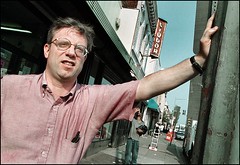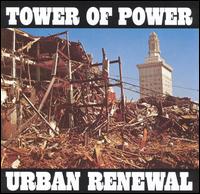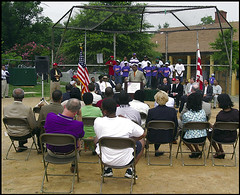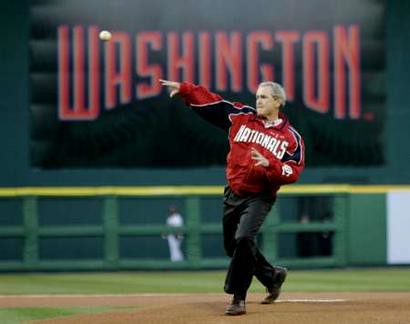Reprint: Tom Sherwood, Duncan Spencer, Anwar Amal, and thinking about what I call the "Uncivil War"
Word is out, see "Breaking: Kwame Brown stripping transportation committee from Tommy Wells as retribution for SUV scandal" from Greater Greater Washington, that Councilmember Tommy Wells is being replaced as chair of the DC City Council Public Works and Transportation Committee as retribution for the Committee's review of personal vehicle use and contracting procedures, a review that came about because of how City Council Chairman Kwame Brown got the DC DPW to get him an expensive SUV to be driven around in.
Below is a blog entry I wrote almost 6 years ago to the day, on July 14, 2005. Given the ethical challenges the city has faced as of late, and the newest evidence of this, the piece remains relevant and apt to today's events.
What will be interesting is over the next two elections in 2012 and 2014 will the majority of Councilmembers be turned out, not unlike what happened in the late 1990s and early 2000s. Also see "Throw the bums out?: Six D.C. Council members deserve to be challenged." from the Post.
Even though I owned the book for years, I didn't read it until about 18 months ago. The book is about the city under home rule, and really it's about the Marion Barry mayoralty. (Note: it was from this book that I learned that Marshall Brown, father of City Councilmember Kwame Brown, was one of Mayor Barry's chief field organizers...)
The chapter on land use and real estate development should be required reading for any local activist concerned with these issues, and it dovetails nicely with the thesis of Logan and Molotch's Urban Fortunes: A Political Economy of Place and the "Growth Machine" thesis that all local politics is really focused on local economic development and "growth," regardless of intra-elite competition.
Speaking of the "racial divide," Duncan Spencer's column in The Hill this week has a piece that is relevant to this ongoing debate (and note: Spencer's piece starts off with a discussion very similar to something I wrote about these issues in October 2001--I guess I will dig up that posting and put it in a blog entry).
A new gentry, with old quarrels
Accelerating change has come to the section of Capitol Hill known as Near Northeast.
Ten years ago, its small, tight row houses were the logical starter homes for up-and-coming Hill rats. Now it is under siege by economic engines on all sides: Securities and Exchange Commission lawyers have moved into the giant Station Place building on Second Street. Developer Jim Abdo is building more than 300 new upscale apartments and condos at the former National Children’s Museum. H Street N.E. is rapidly turning into a shopping, arts and entertainment corridor.
The community has been energized by an incoming group of young, affluent people, many of them white, while older black families have been threatened by higher rents or have sold out at prices unimaginable 10 years ago.
Friction between the new and old of Near Northeast has coalesced around a single very public point — a long-standing block party on Father’s Day at Sherwood Recreation Center, 641 G St. N.E. It was over this issue that one of the backers of this often-raucous event, Jordan Washington, made the claim that “New Washington” does not understand (or much approve of) “Old Washington.” The clear subtext was a clash between affluent young white homeowners and longtime black residents.
Though the event occurred without serious incident, much has been made over the confrontation between activist Advisory Neighborhood Commissioner Joe Fengler (who wants the event to be limited, if not denied a public-space permit) and Washington, who has loudly defended the event as a celebration of black neighborhood culture. Exacerbating the friction is the issue of “leash free” parks in the neighborhood, something backed by “New Washington” but not by “Old Washington.”
Now that lines have been drawn and sides taken, it will only be a matter of time before another issue rises. At stake: Which culture owns the streets of Near Northeast?
What's going on here is really a fight about change and change in power and control. And it's happening all across the city.
The fact is, if you read any of the local community newspapers or listservs, articles in the District Extra section of The Washington Post, subscribe to themail@dcwatch.com, or go to a neighborhood association meeting or a meeting of one or more Advisory Neighborhood Commissions, you see that "tiffs" are everywhere -- in places like Columbia Heights (Boys-Girls Club, Giant sidewalk issues, etc.), in Brookland over the idea of creating a historic district, on U Street about the changing demographics, in the H Street neighborhood about the role of the H Street Community Development Corporation, etc.
I am not a trained sociologist, but these are termed issues of "contested space."
Part of the contest concerns what Logan and Molotch call the "use value of place"--and this influences our sense of ownership, how we manage such spaces as a community, and how we connect with others. My involvement in the issue of alcohol sales and how this contributes to disorder in the public space is one aspect of this.
Logan and Molotch would call this an interference with the use value of the "Daily Round", and reading the book (another absolute requirement for inner-city activists) made me feel somewhat guilty about this. Richard Layman stands outside Family Liquors, which has had its license renewal locked in a protracted battle. "It's amazing the difference," Layman said of the neighborhood on Sundays, when law forces the store to close. "It truly is a day of rest." (Michael Williamson, The Washington Post, August 31, 2003)
Richard Layman stands outside Family Liquors, which has had its license renewal locked in a protracted battle. "It's amazing the difference," Layman said of the neighborhood on Sundays, when law forces the store to close. "It truly is a day of rest." (Michael Williamson, The Washington Post, August 31, 2003)
BTW, the discussion of "use value" is essential to understanding how urban renewal devastated lower-income communities, by destroying the informal networks that communities built up over generations, networks that helped people survive being poor and/or being discriminated against. And it presaged the arguments in the book Root Shock by almost 20 years.
And the understanding of the "exchange value of place" is essential to understanding what the "Growth Machine" is all about.
This wrecking of city neighborhoods for urban renewal, particularly of SW, still impacts the city today, as many of today's most distressed city neighborhoods were the places where those dispossessed from SW ended up.
BTW, this is the same kind of impact that Prince George's County is experiencing, particularly with skyrocketing health care costs at Prince George's Hospital (see "Shakeup, Bailout Sought for Maryland Hospital") and an increase in violent crime and murder in parts of the county particularly close to Washington, DC. The state of the schools too...
I assert this is a result of the displacement of thousands of people from Wards 7 and 8--which I discussed in a couple blog entries about a week ago.
Ward 9 is a real issue, one of "blowback".
It's a reversal of the role that DC has traditionally played vis-a-vis the Maryland and Virginia suburbs for the past forty years--DC as the "catchment" area for the region's poorest, has had to put more money into programs for these demographics, while counties like Fairfax and Montgomery were able to put comparable amounts of money into quality of life promotion projects... I always have thought of this as a "quality of life" subsidy that DC provides to the surrounding counties. An album cover from the 1970s. Who would have thought that the repercussions of urban renewal are still so stark, 30 years later?
An album cover from the 1970s. Who would have thought that the repercussions of urban renewal are still so stark, 30 years later?
Many people, justifiably think of what happened with "Urban Renewal" in the 1950s to the 1970s as "Negro Removal," and it colors their attitudes about what is happening today (and often, in my opinion, leads to an overly simple, facile, and often incorrect interpretation about "current events") . But DC (and New Haven) were the pilot programs--urban "renewal" happened here first--and we still see the debilitating effects upon our community. Certainly, everything I read about New Haven communicates the same message.
In September 2004 before the primary election, I was toying with the idea of writing a piece about this topic for themail, which I intended to call "The Uncivil War." But I chickened out.
I saw the election of Kwame Brown, Vincent Gray, and the return of Marion Barry as but another salvo over the issue of the "contested space" of the streets, neighborhoods, power, and control in the City of Washington.
Many of the subsequent actions of these councilmembers can be seen in this context, such as their unwillingness to support legislation in favor of greater disclosure over donations to Electioneering Exploratory Campaigns (Gary Imhoff in themail called them "The Corruption Caucus").
Or in the Post a couple weeks ago there was an article about how these three councilmembers support a particular bid to buy the baseball team because the leader of that bid has donated money in the past to community activities in Southeast DC. ("Council Members Push Bid of Nats Suitor: D.C. Entrepreneur Would Do More to Help City, They Say.") Photographer: Susan Biddle, The Washington Post. DC Council members Marion Barry, Kwame Brown, Vince Orange, former council member Frank Smith with Jon Ledecky and co-bidders for Washington Nationals, the Hidary's. They gathered on a baseball diamond outside Barry Farm Recreational Center in SE Washington.
Photographer: Susan Biddle, The Washington Post. DC Council members Marion Barry, Kwame Brown, Vince Orange, former council member Frank Smith with Jon Ledecky and co-bidders for Washington Nationals, the Hidary's. They gathered on a baseball diamond outside Barry Farm Recreational Center in SE Washington.
Note: the pandering to "the seniors" and "the children" by developers and the land use lawyers that represent them, who buy off--in effect--neighborhood activists and ANC Commissioners for paltry donations to community groups and events, well, let's just say it gets to me.
Not that I think the other bidders for the baseball team are necessarily any better. Fred Malek? Speaking of Watergate and the Nixon Administration, which is in the news of late. (Yes, I know Malek wasn't involved in Watergate, but he was involved in monitoring perceived opponents of the Nixon Administration. Go Nationals!) Power Politics and baseball in DC. AP photo.
Power Politics and baseball in DC. AP photo.
I used to say people took money, now I call this "green love," given libel and slander laws. It's not really payoffs, but a couple hundred dollars to a block club party shouldn't mean that you are owned for life...
Recent articles in the Post and the City Paper have discussed the ascension of Marshall Brown, and include this one: "Mendelson Faces 2nd Challenger In 2006 Race for D.C. Council Seat," which mentions that At-Large Councilmember Phil Mendelson, known as a strong community activist, is facing opposition next year from A. Scott Bolden (ex-chair of the DC Democratic Party and lawyer with the municipal (and other) bond firm ReedSmith) and David Bowers, a housing advocate.
Mendelson has faced serious opposition from the DC Development Community ever since he was elected. Twice the development community (once supported by a Post endorsement) put up Beverly Wilbourne as a candidate against him. (Plus, I never realized that Marshall was part of the "niggardly" episode that led to the firing of a DC government employee for a time...)
The space gets ever more contested.
Labels: corruption, electoral politics and influence, government oversight, Growth Machine, real estate development



1 Comments:
Excellent article! We will be linking to this great article on our site.Keep up the great writing.
Post a Comment
<< Home